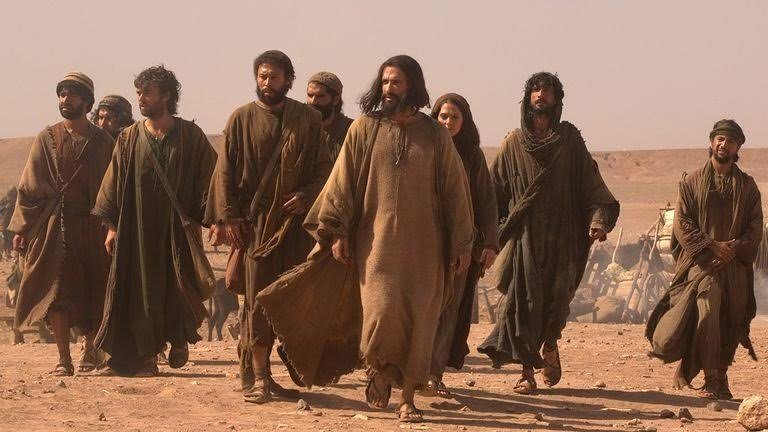And who do you say that I am? – (Mk 8:27-33)
This question of the Lord Jesus resounds constantly in our heart. Who do I consider Jesus of Nazareth to be? Everything in our life depends on the answer to this question, because either we are believers, or we only participate in a certain religious tradition. Our true answer can be found not so much in a declaration, but in our way of life, in our reactions to the various situations we find ourselves in. However, it is not easy to know our true answer to the Lord Jesus' question. It seems that it is easier for us to recognize the real answer of another person than our own, because our ideological beliefs obscure the objective perception of our own choices.
There are two possible distortions in our lives. In the letter of St. James, we read about the inconsistency in accepting the Gospel by making a difference between the people we meet. This is a typical failure in our attitude. We respect people who look good, people who have a good position, which often coincides with their wealth. In the Gospel, the Lord Jesus clearly delights in the poor, he himself has become one of them, and also clearly says: whatever you did for one of these least brothers of mine, you did for me. (cf. Mt 25:40). Usually, poor people are on the margins of the world, and therefore it is easier for us to encounter the mystery of Christ who is present in them. Therefore, we should be open to this mystery. If the world assessment of people prevails in us, it is a signal for us that we lack sensitivity to the mystery of the present God.
In the Gospel, the Lord Jesus, hearing that the disciples consider Him the Messiah, tries to correct their ideas on this subject. Before they understand what the messiah really means, he forbids them to tell others that He is the messiah. That is why he announces his fate to them: The Son of Man must suffer greatly and be rejected by the elders, the chief priests, and the scribes, and be killed, and rise after three days (cf. Mk 8:31)
In response to this announcement, he heard consolation from Peter. In good faith, Peter tried to remove "dark thoughts" from the Lord Jesus. He did not know, however, that his words matched the satanic temptation that the Lord Jesus experienced in a special way in the desert. “If you are the Son of God, throw yourself down. For it is written: ‘He will command his angels concerning you’ and ‘with their hands they will support you, lest you dash your foot against a stone. (cf. Mt 4:6)
To be the Son of God, to be the Messiah, does not mean to be successful in human terms everywhere. The disciples were not able to understand this yet, and therefore the Lord Jesus forbade them to announce that he is the Messiah. They will not receive such an order until after his resurrection.
The second threat to our authentic faith is our failure to distinguish between God's thinking and human thinking, even with the best of intentions. We need to learn from Jesus the very way of thinking and understanding God's things. It is not easy, because every situation is different and sometimes in completely similar circumstances can have a completely different meaning. Hence, one must constantly listen to the voice of the Holy Spirit, who alone knows what is good. And if we do something, we must be humble and be able to recognize as bad what ultimately turned out to be bad despite our best intentions. If we recognize Jesus as the Messiah, then we must accept that we ourselves are only disciples who do not know everything and are constantly disciples in His school.
"And who do you say that I am?" Jesus asks each of us. Is he for us primarily God who gave his life out of love for us? Do we not sometimes reduce him to an ordinary "helper" in difficult matters and defender against the "cruel world"?
It is not enough to be a believer! Faith must be followed by a change of thinking, otherwise faith will be useless. Faith cannot be a goal. Faith is a means to goal which is our inner transformation – to be like Jesus.
Until Tomorrow
fr. george


